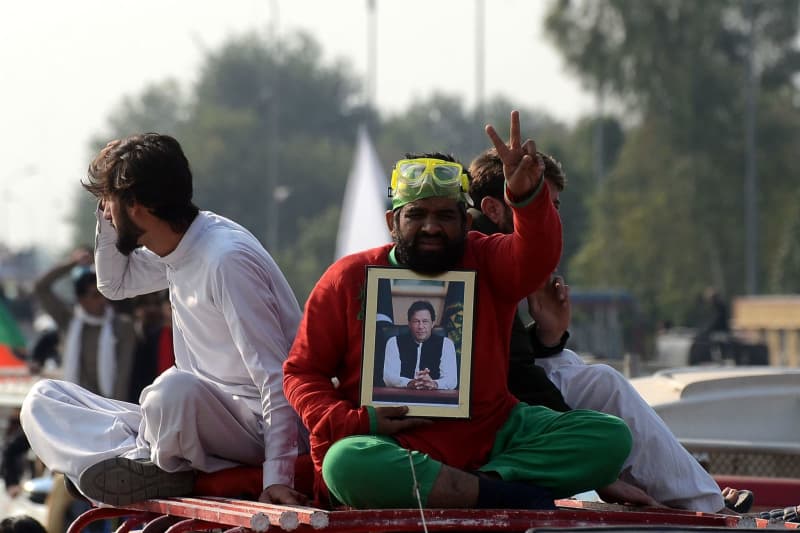Imran Khan, the former Prime Minister of Pakistan, who has been incarcerated for over a year on various charges, including incitement of violence against the military, has called for renewed protests, according to his political party. Following a deadly demonstration in Islamabad last week, Khan’s supporters were encouraged to gather for a protest in Peshawar on December 13. This appeal for mobilization comes on the heels of a public outcry following a four-day protest that resulted in the death of at least 12 demonstrators, as reported by his party. As tensions escalate, the current political landscape in Pakistan, characterized by turmoil and conflict, continues to underscore Khan’s challenges as a leader committed to advocating for his supporters’ rights.
In a significant recent development, an anti-terrorism court has formally indicted Khan and several of his associates for allegedly orchestrating attacks on the military in May 2023. Both Khan and his loyalists have maintained their innocence, pleading not guilty to the charges. His spokesman, Mohamed Ali Saif, stated that the forthcoming protest is aimed at denouncing the violent crackdowns faced by Khan’s supporters during previous demonstrations. The political climate is fraught, with protests historically yielding significant unrest and government responses often marked by harsh measures against dissenters.
The government has countered claims of excessive force during the recent protests, maintaining that no fatalities among the demonstrators occurred during the Islamabad rally. However, reports surfaced indicating that at least six security personnel died amidst the chaos as protesters clashed with law enforcement. This contradiction in narratives amplifies the underlying tension between Khan’s party and the ruling authorities, highlighting a persistent conflict that has become emblematic of Pakistan’s political strife. As the situation remains volatile, both parties are grappling with the aftermath of these tumultuous events and the implications for civil rights and freedoms in Pakistan.
Imran Khan has intensified his rhetoric, calling for the release of supporters arrested during the previous protests and demanding that an independent judicial commission investigate the violence that took place. Without addressing these demands, Khan threatens to initiate a civil disobedience movement, a measure that has profound implications for Pakistan’s governance and civil society. His spokesman reiterated these points, urging the public to mobilize in defense of their rights and emphasize the importance of holding the government accountable for the violence against protesters.
The broader context of this unrest is rooted in the political instability that has beleaguered Pakistan since Khan was ousted from office in April 2022 through a parliamentary vote of no confidence. His removal sparked widespread discontent among his supporters, who view him as a victim of a politically motivated agenda. The ensuing tumult has led to a landscape where protests have become increasingly common, with each confrontation further exacerbating divisions within the country’s sociopolitical framework. Khan’s ongoing legal battles and the government’s response to dissent illustrate a systemic struggle between maintaining order and respecting democratic freedoms.
As Pakistan continues to navigate this precarious moment in its history, the interplay of political authority, public expression, and civil liberties remains central to understanding the unfolding scenario. The situation surrounding Imran Khan’s protests and the responses from both his supporters and the government will likely shape the trajectory of Pakistan’s political discourse for the foreseeable future. With calls for protests on the rise, and growing demands for accountability and justice, it is evident that the current state of affairs is not only a reflection of Khan’s challenges but also of the larger systemic issues facing Pakistan today.

